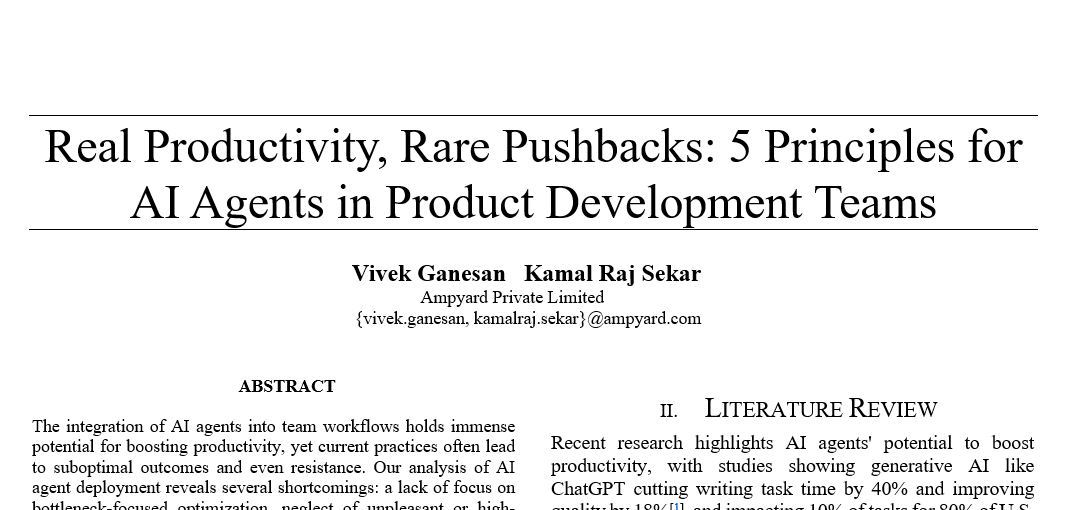
Abstract
The integration of AI agents into team workflows holds immense potential for boosting productivity, yet current practices often lead to suboptimal outcomes and even resistance. Our analysis of AI agent deployment reveals several shortcomings: a lack of focus on bottleneck-focused optimization, neglect of unpleasant or high-value tasks, accumulating work to be done towards the end of the release cycle, and insufficient human oversight, all of which hinder efficiency and team acceptance. We propose a strategic framework anchored in five principles to address these issues: targeting bottlenecks first, automating unplanned or undesirable tasks, tackling high value but deferred work, shifting downstream tasks earlier, and keeping humans in control. Each principle is designed to optimize workflow efficiency and reduce delays, while minimizing pushbacks by positioning AI agents as supportive tools. Our framework enables smoother workflows, faster feedback loops, and improved decision-making, fostering the development of AI agents that deliver measurable productivity gains and drive superior outcomes in real-world applications.